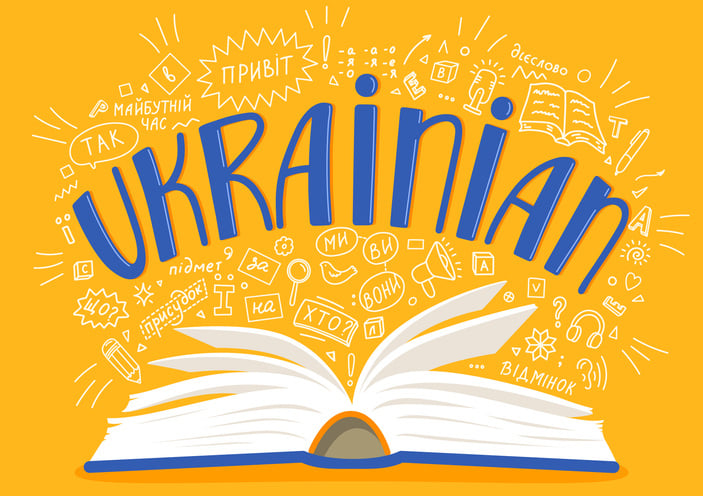9 Factors for Choosing the Best Ukrainian Translation Provider

Navigating language services can feel overwhelming, especially when entering new markets with unique linguistic and cultural complexities.
For businesses targeting Ukrainian-speaking audiences, it's essential to find a translation provider that delivers not only accurate translations but also culturally relevant communication.
At LinguaLinx, we bring over 20 years of expertise, having provided services in over 200 languages, including Ukrainian. This guide will help you choose a Ukrainian translation partner that fits your business needs.
The Ukrainian Language: What You Need to Know
Ukrainian is the official language of Ukraine and is spoken by approximately 40 million people globally. Part of the East Slavic language family, it shares linguistic roots with Russian and Belarusian. However, Ukrainian is distinct in terms of vocabulary, pronunciation, and grammar.
Regional dialects within Ukraine also play an important role. For example:
- Northern Dialects: Influenced by Belarusian and Polish.
- Eastern Dialects: Contain linguistic traces of Russian due to historical ties.
- Southwestern Dialects: Incorporate words and grammar structures influenced by Hungarian and Romanian languages.
An experienced translation provider should understand these dialectal differences and adjust translations accordingly to communicate effectively with various Ukrainian audiences.
Key Questions to Ask When Choosing a Ukrainian Translation Provider
1. Do They Understand Ukrainian Dialects and Cultural Nuances?
While Standard Ukrainian is used in formal and governmental contexts, regional dialects influence communication across various parts of Ukraine.
Your provider should be knowledgeable about these regional variations, particularly if you’re targeting localized markets.
Understanding how phrases and expressions resonate across different regions will help maintain your brand’s message and tone.
2. Do They Have Experience in Your Industry?
Specialized industries require translators with subject-matter expertise. Whether your business operates in healthcare, legal services, or technology, your provider must demonstrate experience with industry-specific terminology.
For example:
- Healthcare: Patient communication materials should be clear and culturally sensitive to reduce confusion or misinterpretation.
- Legal: Contracts and regulatory documents must be translated with precision to maintain compliance and mitigate risk.
- Technology: Software interfaces and product manuals require specialized knowledge to ensure usability.
Ask about the provider’s history with similar projects and industries. Their ability to translate both accurately and contextually will significantly impact the success of your project.
3. Do They Have the Right Qualifications?
Certifications and robust quality assurance (QA) protocols are vital to delivering reliable translations. A provider with proper qualifications demonstrates adherence to international standards and the ability to meet your expectations consistently.
ISO Certifications:
- ISO 17100: Ensures the use of qualified translators, effective project management, and strong service practices. This certification also requires regular audits to verify that translation providers maintain high standards in resource management and project workflows.
- ISO 9001: Focuses on quality management processes, guaranteeing consistency across all translation projects. It emphasizes continuous improvement, helping providers refine their processes to enhance customer satisfaction and service reliability over time.
QA Processes:
- Editing and Proofreading: Multiple rounds of review by linguists help ensure quality and accuracy.
- Cultural Adaptation: Providers should account for idiomatic expressions, societal norms, and cultural sensitivities to localize content effectively.
- Third-Party Review: Independent verification ensures objective quality assessment before final delivery.
These measures ensure the translation meets both linguistic and business needs.
4. Are They Transparent About Their Processes and Team?
A trustworthy provider will be upfront about how they work and who will handle your project. Important questions to ask include:
- Are the linguists native Ukrainian speakers with relevant expertise?
- How structured and flexible are their workflows?
Can they adapt to changes in project scope or deadlines without compromising quality?
Transparency also extends to the provider's use of technology, such as translation memory (TM) systems that promote consistency across projects.
5. Can They Handle Projects of Different Sizes and Formats?
Your needs may range from translating short marketing materials to localizing extensive legal or technical documents. A good provider should be scalable, capable of managing:
- Small Projects: Quick turnarounds for urgent needs.
- Large Projects: Comprehensive services for complex projects that require multiple layers of review and collaboration.
Look for providers that offer supplementary services like desktop publishing (DTP), voiceovers, and video subtitling, which streamline the process and maintain brand consistency.
6. Do They Offer Multilingual Services?
Many businesses expand into multiple regions, making it beneficial to choose a provider experienced in other languages beyond Ukrainian. This streamlines project management and ensures linguistic consistency across various markets.
Ask if they can provide services in related languages like Russian or Polish, as these may be relevant depending on your target regions.
7. What is Their Track Record?
Past performance is a key indicator of reliability. Request case studies or examples of completed projects that demonstrate both quality and consistency.
Look for client testimonials or references that show their ability to manage similar projects effectively.
Assess how long they’ve been in business. Providers with years of experience often have proven systems in place for delivering top-tier service under tight deadlines.
8. How Do They Ensure Confidentiality?
Sensitive information—such as proprietary business data, legal documents, or healthcare records—requires strict confidentiality measures. Your provider should have clear protocols to secure data at all stages of the translation process.
Ensure they use secure file transfer systems, encryption, and non-disclosure agreements (NDAs) with their translators. They should also provide details on how data is handled and disposed of after project completion.
9. Do They Provide Ongoing Support?
A strong translation partner offers more than just project delivery. They should support you post-delivery, helping to refine translations based on audience feedback or evolving business needs.
Ask if they provide long-term services like maintaining glossaries, translation memories, or adapting content for future updates. This support ensures your content remains relevant and impactful as your business grows.
Ready to Invest in a Reliable Ukrainian Translation Partner?
Choosing the right Ukrainian translation provider is essential for ensuring your message is both understood and appreciated by your audience.
By focusing on expertise, qualifications, and long-term support, you can confidently navigate this linguistic market.
At LinguaLinx, we leverage two decades of experience, ISO certifications, and industry expertise to deliver translations that drive results.
If you’re ready to elevate your Ukrainian communication strategy, request a consultation today. Let us help you take the next step toward global success.






